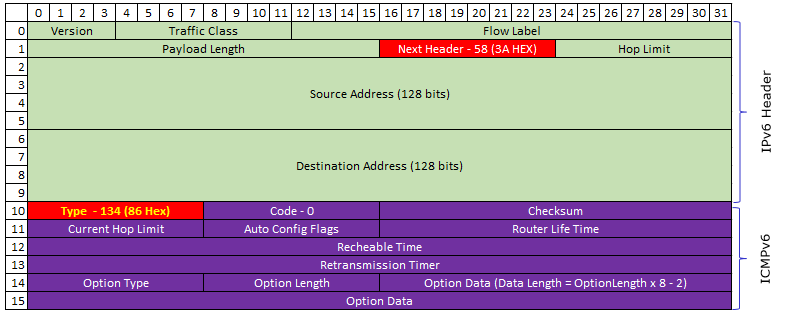

Internet Assigned Numbers Authority (IANA) provides a list of all message types ICMP packets use. Some common message types include the following: Upon receiving an Echo message, the receiving device might send back an Echo Reply (Type 0), indicating it is available.
#Icmp checksum how to
The type provides a brief explanation of what the message is for so the receiving network device knows why it is getting the message and how to treat it.įor example, a Type 8 Echo is a query a host sends to see if a potential destination system is available. Variable A portion that varies depending on the Type and Code fields.Checksum Used to ensure that the contents of the ICMP header and data are intact upon arrival.Code The subclassification of the ICMP message, based on the RFC specification.Type The type or classification of the ICMP message, based on the RFC specification.The ICMP header contains the following fields: ICMP contains a relatively small header that changes depending on its purpose. ICMP is part of IP, and it relies on IP to transmit its messages. It is a connectionless protocol, meaning a device does not need to open a connection with the target device before sending a message.

ICMP is not associated with any transport layer protocol, such as Transmission Control Protocol (TCP) or User Datagram Protocol (UDP).It is used by network administrators to troubleshoot internet connections in diagnostic utilities including ping and traceroute. ICMP is not used regularly in end-user applications.

ICMP is not a transport protocol that sends data between systems. Capture ICMP Packet with Tcpdump Command.The protocol field in IP header will be set to ICMP followed by the ICMP payload. ICMP messages are sent using a basic IP header. The Ping and Traceroute utility tools leverage ICMP messages for fault detection and isolation. Internet Control Message Protocol (ICMP) is a network layer protocol that serves the purpose of error reporting and network path diagnostic functions.


 0 kommentar(er)
0 kommentar(er)
